How To Tell The Difference Between Empathy And Enmeshment
Do We Know Everything About Empathy?
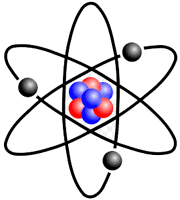 It must have been a thrilling moment when Ernest Rutherford came up with his revolutionary model of the atom. The image of Rutherford’s atom is probably the most iconic, familiar and favourite symbol in the world of science. Remember the adorable little bunch of coloured marbles in the nucleus, with a few electrons whizzing around them in elliptical orbit? Humanity was enamoured with this symbol, every classroom had a picture of it up on the wall
It must have been a thrilling moment when Ernest Rutherford came up with his revolutionary model of the atom. The image of Rutherford’s atom is probably the most iconic, familiar and favourite symbol in the world of science. Remember the adorable little bunch of coloured marbles in the nucleus, with a few electrons whizzing around them in elliptical orbit? Humanity was enamoured with this symbol, every classroom had a picture of it up on the wall
The Rutherfordian model for what was then believed to be the unit of existence was eminently useful for a number of purposes, and it helped to answer many questions that had mystified physicists until then. So why is it no longer so prominent?
Have you noticed how there seems to be a sense of finality with every new scientific model? With every major new theory, we like to think that we have reached our destination, and that we can all get on with our lives secure in the knowledge that the answers are here. We thought for a while that everything was about protons, neutrons and electrons – that is, until quantum physics came along. For a while, we also thought that human health necessitated the killing of germs. But even Pasteur was not sure by the end of his life, when, on his deathbed he famously confessed: “Bernard was right; the pathogen is nothing; the terrain is everything.” And though Darwin enlightened the world about the reality of biological evolution, the new science of epigenetics has forced us to rethink much of his model.
Evolution has evolved, you could say.
Just when we think we have arrived… we haven’t. The latest and greatest scientific model begins to show its infirmity when new questions arise that it is powerless to answer. At that point, even the most elegant of scientific or philosophical models must change or die. It is a moment of crisis, and out of the crisis a new model is born. The best thing we can do is to remind ourselves that knowledge is evolutionary, rather than factual. Explanations are destined to keep growing and changing forever. We can honour the latest theorists for their brilliance; yet equally welcome the new ones who take their place.
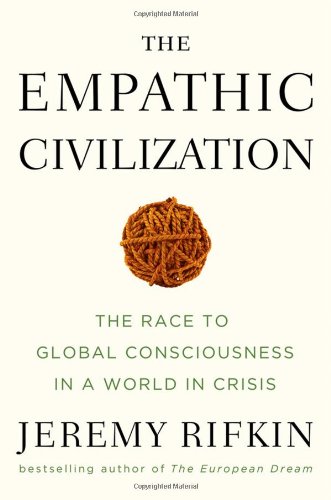 Today the world is all abuzz about the science of empathy. It’s one of the most celebrated subjects of psychological and neuro-psychological enquiry; empathy has everybody talking. The blogosphere is full of commentary about this or that latest piece of research, powered by cutting-edge brain-imaging devices. And this has begun to make a wonderful difference in our lives. Schools are incorporating units on empathy and emotional intelligence in their timetable, health practitioners are taking courses to hone their empathic abilities and empathy is rapidly becoming the new lens through which we evaluate human behaviour. Jeremy Rifkin, former economic advisor to the European Union and several heads of state, has produced a blueprint for a new, sustainable and just global society that he calls The Empathic Civilization (Penguin 2009). Just about every field of human endeavour has been permeated by a new narrative about the desirability of human empathy; the yardstick of relational health. What we now know about empathy has the potential to transform human society in spectacular ways.
Today the world is all abuzz about the science of empathy. It’s one of the most celebrated subjects of psychological and neuro-psychological enquiry; empathy has everybody talking. The blogosphere is full of commentary about this or that latest piece of research, powered by cutting-edge brain-imaging devices. And this has begun to make a wonderful difference in our lives. Schools are incorporating units on empathy and emotional intelligence in their timetable, health practitioners are taking courses to hone their empathic abilities and empathy is rapidly becoming the new lens through which we evaluate human behaviour. Jeremy Rifkin, former economic advisor to the European Union and several heads of state, has produced a blueprint for a new, sustainable and just global society that he calls The Empathic Civilization (Penguin 2009). Just about every field of human endeavour has been permeated by a new narrative about the desirability of human empathy; the yardstick of relational health. What we now know about empathy has the potential to transform human society in spectacular ways.
In The Science of Evil: On Empath and the Origins of Cruelty (Basic Books 2011), Cambridge neuro-scientist Simon Baron-Cohen talks about at least 10 different brain regions purpose-built for the human faculty of empathy. Child psychiatrist and traumatologist Bruce Perry reframes psychopathy as the result of damage to the brain’s empathy centres caused by abuse and neglect in early childhood. The kind of ‘brain damage’ that neuro-psychologists are referring to in this context takes place without a blow to the head. There is hard evidence that repeated emotional shocks borne through child abuse or neglect can, over time, corrode the brain regions that regulate emotion. An un-empathic childhood environment has the potential to harm our capacity for empathy. These discoveries have uprooted our deepest and most long-held assumptions about human morality. The atavistic concepts of ‘good’ and ‘evil’ have lost their validity, other than as convenient metaphors.
The implications of the new science of empathy are shaking our cultural moorings loose. We know today that no human being was ever born to be pathologically self-serving or violent. Just as the seed contains a blueprint for the plant, our central nervous system carries the blueprint for empathy. And as with the plant, the health and vitality of our empathy circuits depend on our environment, from conception through childhood and adolescence. This changes everything. Chronic, remorseless violence is not a matter of ‘evil’; science has unequivocally reappraised it as a matter of mental health. This presents us with a great problem, since our corrective institutions are built on the axiom of punishment. It might give temporary satisfaction to the community when an offender is made to suffer in a cell. But our out-of-control recidivism rates should be proof enough of the irrelevance of punishment. The biological reality of empathy points emphatically towards therapy rather than punishment. The kind of sustained, holistic, life-style-overhaul kind of therapy that can rebuild the brain’s damaged empathy centres – one new neural pathway at a time. The kind of rehabilitation that gives Scandinavian prisons their vastly superior results. As a model of human behaviour, the ‘good vs bad’ moral frame has failed us.
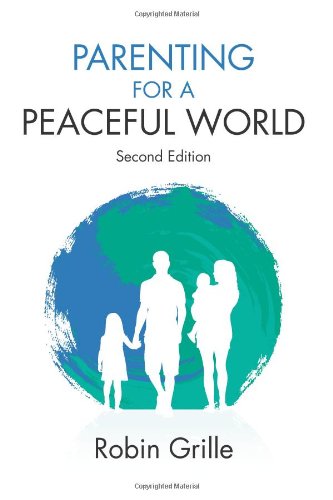
The human capacity for empathy is not guaranteed. The neural circuitry that animates our ability to feel for one another cannot grow unless we receive a sufficient amount of nurturance, safety and security, preferably (though not exclusively) in childhood. Without empathy, empathy fails to grow. For millennia, children were viewed through a moral lens, and were accordingly raised with the crude tools of punishment and reward. This has hardly been the optimal soil for cultivating an empathic society. The carrot-and-stick pedagogy that sprang from the binary morality rationales of yesteryear has given us the unrelenting violence of history. One of the gifts that the modern understanding of empathy has brought to us is this imperative: instead of punishing, we must heal. Instead of condemning evil, we can prevent it via truly empathic child-rearing and education. This understanding has begun to change our world in wonderful ways, and for this the researchers of human empathy earn our gratitude.
And so, the morality paradigm recedes and the empathy model of human relations, with its verifiable neurobiological basis, is its welcome replacement. Morality is out; empathy is in – for now, that is. As with every model, there comes a time when questions arise that it cannot adequately answer. As with the Rutherford atom, Darwinian evolution and the germ theory of disease, there is a growing sense that our current conceptualization of empathy is up for revision. Sooner or later, the model has` to be adjusted. And the culturally agreed perspectives on empathy are increasingly under fire.
Take for instance the critiques lobbed at empathy by Paul Bloom, Yale professor and author of Against Empathy (Ecco 2016). Listening to the usual discussions about empathy that reverberate through academia, magazines and social media you’d be left with the simplistic notion that a) empathy is always good, therefore, b) more empathy is better and, c) less empathy is worse. Note the two-dimensional, linear model of empathy. Bloom has raised some fair and thought-provoking objections to this common representation of empathy, as we shall see.
But before anyone throws the baby out with the bath-water and goes all-out ‘against empathy’, we need to take a deep breath. I believe we’d be crazy to devalue empathy as our guiding principle in parenting, in education, in our work and in our connection with the world. Moreover, it strikes me as droll that anyone could be ‘against’ an intrinsic and biological human faculty. If empathy is so bad for us, then why did evolution devote all that brain space to it? So, when the simplistic linear model of empathy proves inadequate, it is an over-reaction to be ‘against empathy’ when instead we can seek to understand empathy better and amend our model accordingly.
Here I would like to offer a more holistic definition of empathy. This definition springs from my experience as a psychologist, researcher, parent educator and workshop leader. I cannot make a claim to any special authority in my definition, nor can I refer you to any scientific consensus.
I believe the empathic experience means that you feel, in your own body, a little of what another person feels – without losing your sense of self in the process. In other words, you don’t lose sight of the fact that the feelings, emotions or sensations belong to the other person and not to you. In this way, empathy means that you can feel in synch with another person without becoming swamped by the other person’s experience. Empathy is mostly mentioned in the context of feeling for other people’s pain – but empathy is in no way limited to one particular sensation or emotion. We laugh when others around us laugh, we yawn when we see someone yawning, we feel irritable when sitting among angry people, and are calmed by the presence of peaceful, serene individuals. A brain scan would show specialized ‘mirror’ neurons lighting up in synch with each other.
And here is an exciting thought: empathy also works outwards. When we show some of our emotion, people around us feel closer to us. When we emanate wellbeing and affection, others in our environment are uplifted. Emotion is contagious; we catch it from one another.
The transmission of emotion is what enables us to feel connected to each other in groups. This is critical to human survival and wellbeing; we are above all social creatures and we thrive through co-operation. When we are generous or caring towards another person and we witness their gladness as a result, we can feel pleasure in our hearts even before receiving their gratitude. Our empathic neuro-circuitry allows us to take pleasure from the joy we see in others; this primes us to be prosocial beings and balances the more self-serving aspects of human nature.
We are wired for empathy and are driven by it – that is; provided the neurological blueprint for empathy has been nurtured in childhood. No-one is born to be un-empathic. But if the conditions necessary for our empathy circuits to develop are not met in childhood and youth, our empathic resonance fails to develop and may even atrophy. Like a garden, the neurobiology of interpersonal sensitivity must be cultivated.
How Do We Get Confused About Empathy?
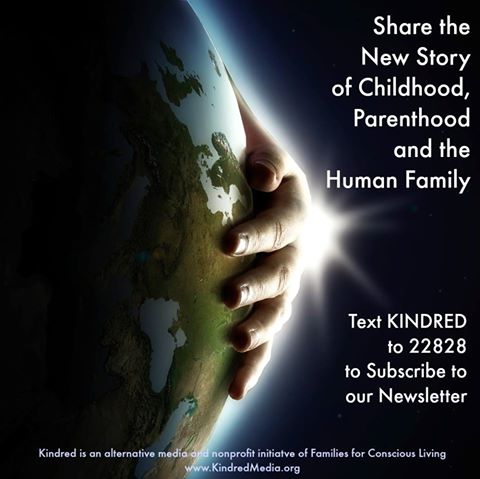
We grapple with empathy simply because we have yet to fully understand it. When we think that empathy has landed us in hot water, this is because we have not fully grasped its complexities and limitations. In defence of the vital function of empathy and its central role in human society, I would like to propose ten limitations and misconceptions that relate to human empathy. I believe it is these limitations that have caused some writers to be critical of empathy itself.
- Caring behaviour – or what looks like caring behaviour on the surface – is not always necessarily driven by empathy. Sometimes helpful behaviour can be motivated by guilt, or the desire to gain approval or kudos. Sooner or later the difference becomes apparent, and the difference is big! Narcissistically driven ‘kindness’ is quickly extinguished when the external rewards – such as praise or congratulations – fail to materialize. It’s important to distinguish narcissistically-driven from authentic helpfulness, so that empathy does not get a bad name.
- Empathy or Enmeshment? Empathy can easily be confused with something else which at first might look like empathy, but is in fact entirely different: it is called enmeshment.
In a You Tube lecture entitled Against Empathy: the Case for Rational Compassion, Paul Bloom argues that if, for instance, his son is anxious and comes to him for help, he would hardly be helpful as a father if he sank into his own anxiety along with him. As the son of an over-concerned Jewish mother, I get what he is talking about! But when we absorb another person’s pain to the point that we have made it our own, we can no longer call that empathy.
Empathy means that you feel pain for another who is in pain, without losing the sense that the pain is in the other’s body, not your own. With empathy, you maintain your own centre, you retain your own good feelings and you don’t make yourself the centre of the issue. When we feel flooded by another person’s emotional experience, that is a sure sign that our own psychological wounding has been activated. Although this ‘flooding’ experience is often confused with true empathy; it is something else altogether. We have been triggered by the other person’s story and emotions come up related to our own past.
Enmeshment is a question of interpersonal boundaries. When we seem to be awash in the emotions of others, we have lost our centre, our sense of self. The problem here is not about an excess of empathy; it is about a loss of connection to our own core.
Empathy does not exhaust you, it enlivens and motivates you. It does not disable you, it fuels your natural desire to act supportively towards the person that has moved you. Human beings thrive on the direct experience of interconnectedness; it makes us feel alive and enriches our lives. When we tap into our essential connectedness with others through empathic dialogue, this feels nourishing, rather than draining. Can we as parents relate to our children’s anxiety as opposed to succumb to it?
- Empathy often gets confused with pity. What sets empathy apart from pity is that in empathy we don’t necessarily view the other person as powerless in the face of their predicament. The experience of empathy might move us to be helpful or supportive, without seeing the other person as a victim of their circumstance. Pity, on the other hand, is more likely to drive rescuing behaviour.
- People with psychopathic traits are uncannily perceptive. Their supremely penetrative ability to read the needs and feelings of others is entirely self-serving; it has no altruistic intent. Like a car salesman who picks up on your deepest desires even before you do; the narcissist’s capacity for intuition should not be confused with empathy; it is merely tactical. True empathy does not come with a hook.
- Empathetic Blindness. One of the most disappointing characteristics of human empathy, according to Paul Bloom, is how selective it can be. Hard as it is to admit, we tend to more readily empathize with particular types of people, at the expense of others. We seem to identify with people of similar age, ethnicity, socio-economic status or the same gender. We select specific charities and support causes that tug at our heart strings – while leaving others out. We take sides, we have favourites. It appears that generally speaking, our empathy leans towards people with whom we perceive ourselves to share a commonality of experience. But does this mean that empathy is not a good thing?
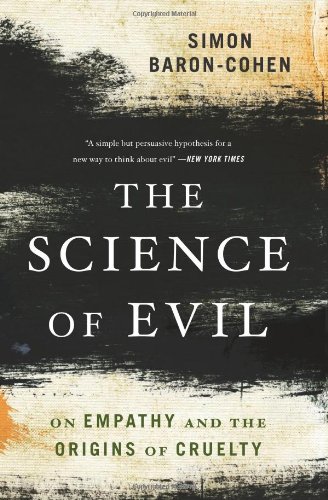 Simon Baron-Cohen’s research in The Science of Evil demonstrates that empathy depends on perception. We are less likely to be triggered into a full empathic response when we cannot clearly see into another’s experience. In one way or another, everyone suffers some kind of empathy blindness. In other words, we are more easily touched if we think we can understand another person from the inside; because our personal experience is the conduit. That’s why it is natural for mothers to better understand how other mothers feel, for war veterans to better understand other veterans, for cancer sufferers to relate to how cancer sufferers feel and so on. But this is hardly a reason to downplay the value of empathy; it is in fact what is so beautiful about empathy. Our hearts grow with experience, and the more we get in touch with our vulnerability, the more we are able to expand towards others.
Simon Baron-Cohen’s research in The Science of Evil demonstrates that empathy depends on perception. We are less likely to be triggered into a full empathic response when we cannot clearly see into another’s experience. In one way or another, everyone suffers some kind of empathy blindness. In other words, we are more easily touched if we think we can understand another person from the inside; because our personal experience is the conduit. That’s why it is natural for mothers to better understand how other mothers feel, for war veterans to better understand other veterans, for cancer sufferers to relate to how cancer sufferers feel and so on. But this is hardly a reason to downplay the value of empathy; it is in fact what is so beautiful about empathy. Our hearts grow with experience, and the more we get in touch with our vulnerability, the more we are able to expand towards others.
Our natural empathic bias happens because empathy, much like a skill, a muscle or a language, grows with use and with life experience. There are many factors that grow our capacity for empathy, too many to mention here. Life’s adversity can cause our hearts to open, depending on how we process it. The way our elders treated us in childhood was also a major influence on the state of our empathic abilities in adulthood. As our hearts grow, so does our locus of empathy. In a primitive state of development, our locus of empathy extends to people from our ‘tribe’. As we mature, it extends to larger and more diverse social and cultural groups.
Most people today have a higher degree of empathy than our forebears did. The average rates of crime, domestic violence and war-related death have been falling dramatically for over a century and continue to decline across most of the world. But many of us remain un-empathic towards the non-human world, the living eco-systems with which we are inter-dependent. Though much work remains to be done, there is no historic precedent for the advancements in welfare, human rights and social justice that we take for granted in the modern world. Our next collective social-evolutionary step is to feel empathy for the ecological living organism that surrounds and sustains us.
So this is not a time for academics to turn ‘against empathy’; we should be learning how to deepen it. There has never been a greater urgency for humanity to expand our locus of empathy towards the non-human world – our very survival depends on this.
- Complete empathy is impossible. When we say: “I understand how you feel”, that might be an audacious claim. The only way to fully understand how another person feels is to have lived their life. At best what we have is a partial understanding that has been modified by our own limited life experience and coloured by our own thinking. Having said that, we can still be deeply moved by others, and that’s what makes the world go around! Empathy does not give us the whole other person; they remain for always a mystery. What empathy does is to build an imperfect bridge between us just strong enough for connection to happen.
- Empathy is not a cerebral concept, it is viscerally felt. It cannot be deliberately conjured, and it is not an intellectual exercise. When a society acts empathically, such as with protecting human rights, distributing resources fairly and safeguarding the environment, these initiatives will not stand if they are merely enacted based on the rational idea that they are ultimately more sensible. Ideas can always be combatted with other ideas and they easily fall in debate. When a government legislates for justice and sustainability, the very next government can turn those laws to ash – we are seeing this happen right now. True empathy outlives law and out-performs rationality, because it is felt at the gut; powerfully so. A harmonious society emerges organically when enough of its members refuse to do harm, not because non-violence is smart or moral, but because they simply cannot stomach violence. True empathy disables violence. It neutralizes our capacity for hostility and selfishness, whether or not the law demands it.
- People who are ordinarily good-hearted have been known to behave un-empathically as part of a group. A striking example of this is when a corporation causes great harm to its community though most of its employees are caring and compassionate individuals. How does this happen? There are many reasons; legal, organizational, financial and practical, why corporations can wreak havoc in our world although, puzzlingly, most of their members might be perfectly nice people.
We saw earlier (Simon Baron-Cohen’s research) how the trigger for empathy requires a strong perceptual or sensory input, without which the empathic impulse might not be ignited. Most workers in a corporation spend their days busily engrossed in their own section, doing the best they can at their desk or assembly line, far removed from the realm where harm is being done. If we are to act empathically, against the culture of a group we are part of, we need more than empathy; we also need to be highly pro-active, inquisitive and in fact, somewhat heroic. I would wager that whistle-blowers are not necessarily more empathic than their co-workers. But they are definitely braver, more self-assured and more sceptical of ‘authority’.
- It is a common fallacy to think that people without empathy are violent. In fact, most people who have low empathy are not violent at all (at least not in the ordinary meaning of ‘violence’). They can come across as indifferent, disengaged and overly cerebral, but not necessarily hostile. Psychopaths are famously un-empathic and their brain scans show damage in key empathy regions, but most low empathy individuals are not out to hurt or control anyone.
- Empathy is just like fuel in the tank: it periodically runs out, and then we need a refill. When we spend too long immersed in listening to the feelings of others, we burn out. We get empathy fatigue.
At the point when emotional exhaustion approaches, we have allowed ourselves to exceed our balance; we have neglected the need for self-empathy. Our health and wellbeing require us to withdraw our care for a time, to seek a separate space where we can be removed from the emotional maelstrom of others, and redirect care towards ourselves. Perhaps too, to receive care from others. When we regularly fail to balance altruistic empathy with self-empathy, that is a sign of psychological wounding, not a sign of ‘too much empathy’.
Towards An Empathic World
When an academic claims that psychotherapists are rendered ineffective by feeling along with their clients, that is a case of over-reach. It is true that as therapists we are ineffectual, at times even invasive, when we lose our centre: that sense that ‘I feel with you but the experience is yours, not mine, and I have my own separate and different experience over here’. When as therapists we drown in our clients’ experience, when we become rescuers or live vicariously through them, that is called ‘counter-transference’, not empathy. Emotional transference onto our clients involves projective identification: we identify with them and the interpersonal boundary is blurred. Of course this gets in the way of healing! But to throw empathy overboard is not the answer. A true empathic connection requires us to remain grounded in ourselves.
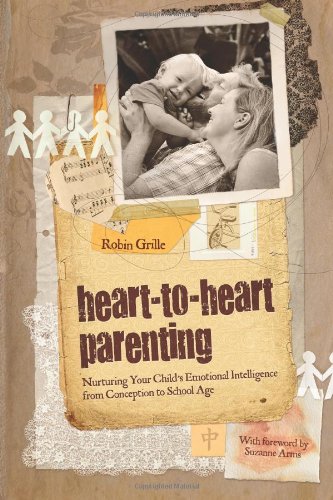 Above all, humans seek connectedness, it is our primary drive. Over and above advice, strategies or solutions; we long to be heard, and except on rare occasions, we are repelled by other’s attempts to ‘fix’ us. We want to see whether we have an impact on the other; to know if the other feels something in response to our presence. We then also want to hear something emotionally authentic from the other. At some point we might ask for help or advice, but the direct experience of interpersonal connection comes first.
Above all, humans seek connectedness, it is our primary drive. Over and above advice, strategies or solutions; we long to be heard, and except on rare occasions, we are repelled by other’s attempts to ‘fix’ us. We want to see whether we have an impact on the other; to know if the other feels something in response to our presence. We then also want to hear something emotionally authentic from the other. At some point we might ask for help or advice, but the direct experience of interpersonal connection comes first.
The connection that satisfies the heart’s longing is larger and more encompassing than empathy itself. Connection does not require us to feel similarly to each other – it requires us to be ‘real’, emotionally authentic. If you have ever experienced a moment with a friend or partner when you were upset with each other, you spoke frankly with each other and this brought you closer together, then you know exactly what I mean. If we take ownership of our emotions, even being angry with each other can bring us to a deeper love. That ineffable but most fulfilling moment of connection comes from truth, not from agreement. If all we ever offer in dialogue is an empathic response, then perhaps we are not being honest – and this comes at the cost of connection.
No wonder empathy has had some bad press lately. We do suspect that empathy is not everything, and that if we force empathy at the expense of realness things get a little sticky. But it is wrong to blame empathy for our misuse and misunderstanding of it. We need to figure empathy out better, to understand its limits better, to nurture its growth while remaining honest about its absence. To recognize that empathy is only one aspect of connectedness, that it is only one of the vital ingredients of human love, is hardly to criticize it or diminish its value. It remains as vital as the air we breathe, and humanity is all the better for having lifted empathy high in public discourse and inquiry
Nothing scares me more than justice left in the hands of people who intellectualize the need for a good ‘moral’ outcome. There is nothing more fanciful than the idea that human beings act ‘rationally’. With or without our conscious awareness or permission, our choices are powerfully motivated by feeling, sensing and emoting – for better and for worse. The rational mind is almost limitlessly clever at rationalizing the choices that we make based on feeling, after the choice has already been made. As Thomas Lewis, UCSF professor of psychiatry explains in A General Theory of Love, this is demonstrably a matter of neuro-psychological structure. Our emotional mind (the enteric brain in the gut, the heart-brain and the limbic brain) drive our thinking in a matter of nano-seconds. The frontal lobes, seat of the rational mind, think slowly and are mainly receivers of information sent from the emotive circuitries. We feel first, think later, and we give our actions a post-hoc rationale. The rational brain can have some influence on the emotional brain but it is usually the other way around. Just and loving behaviour is more trustworthy and sustained when it is powered by feeling – in other words; the visceral pangs of human empathy. We cannot philosophize our way to a better world. The way to a new society is to heal the human heart, and to raise our children in empathy.
I think that if we downplay the value of empathy, we do so at our own peril. By all means, we should continue to modify the model we use to conceptualize empathy, just as we have done with every other scientific model. And just as with other vital scientific models, amending it does not mean discarding it, or taking a position ‘against empathy’. The decoding of empathy is not done yet, not by a long shot. There is so much more research and investigation, so much more discussion to be done. The unearthing of the foundations of empathy is very much in progress and there remains much more to excavate. The more we discover about this most miraculous of human body-mind faculties, the more harmonious our societies will be.

